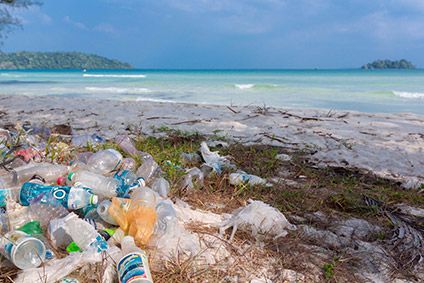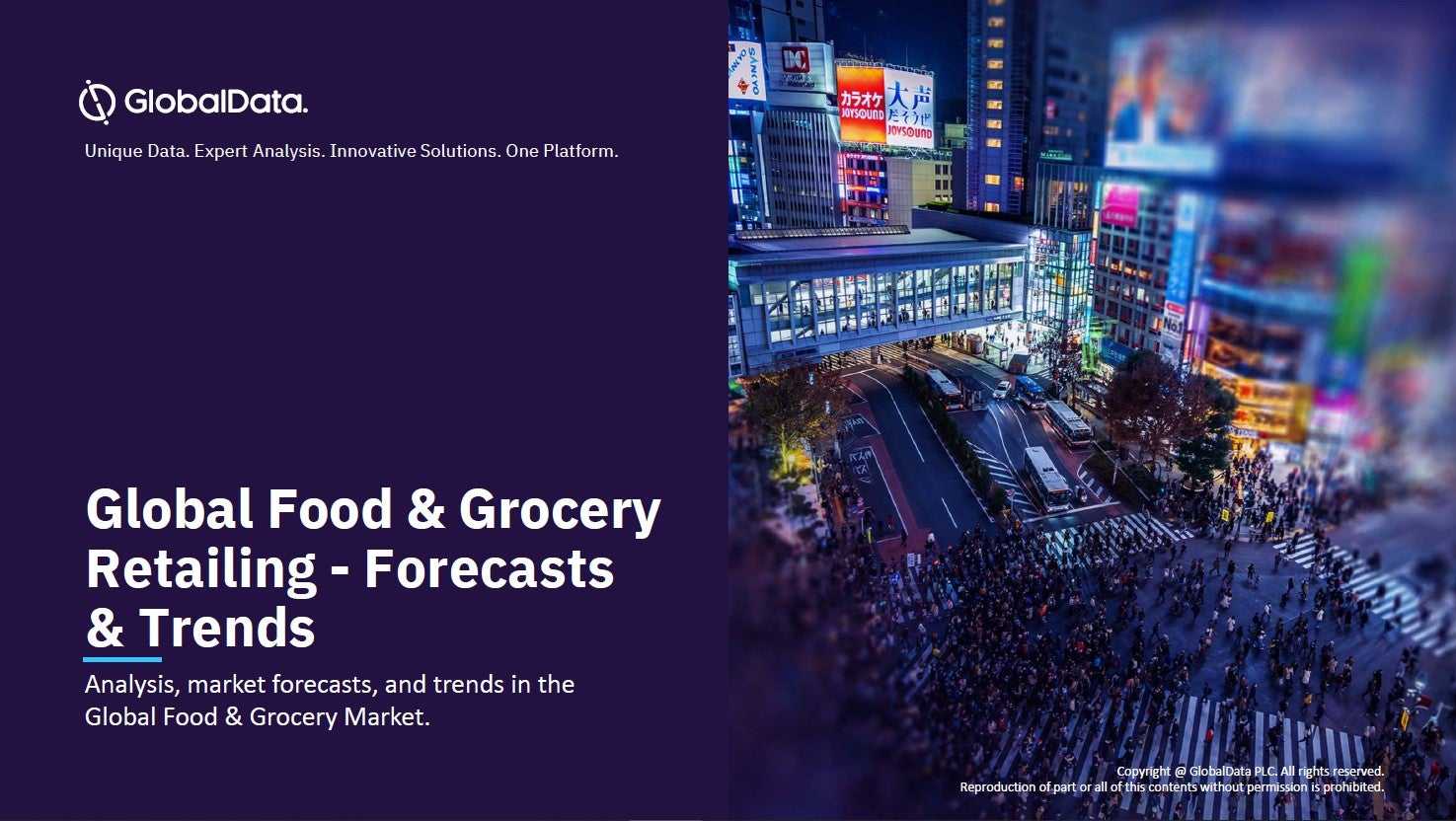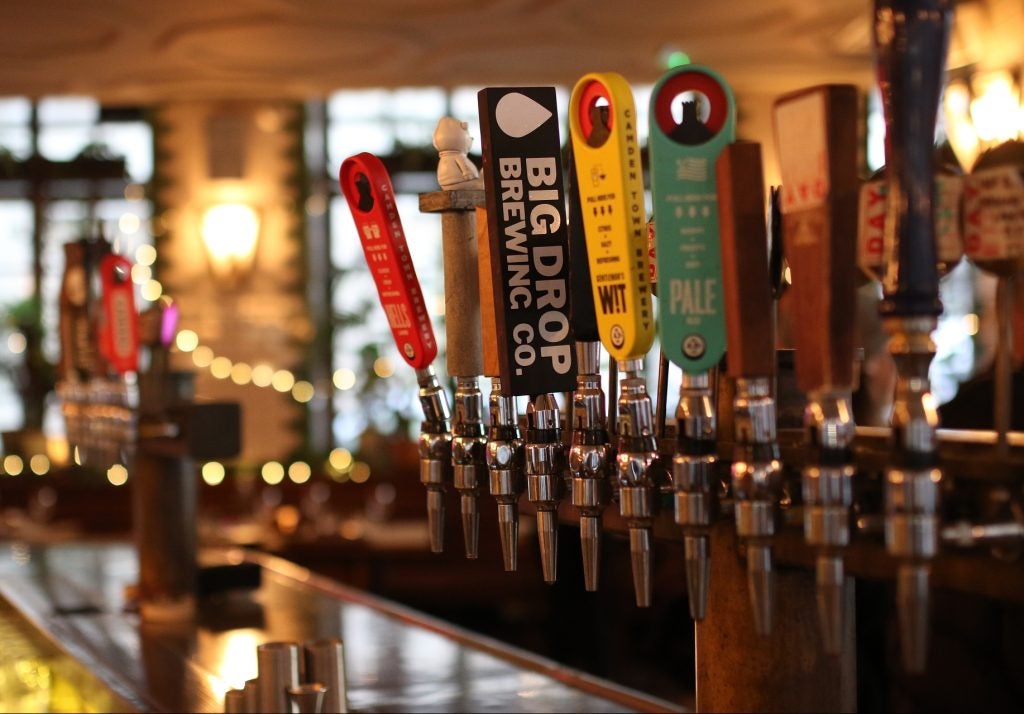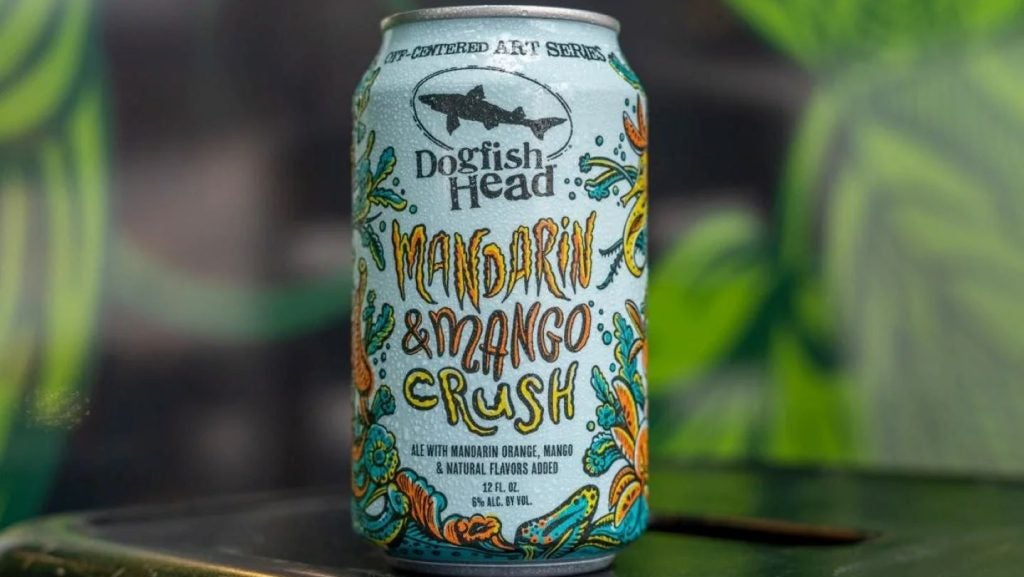
The past year has seen significant change in the soft drinks and water sectors, precipitated by that immutable force – necessity. A look back over the past 12 months reveals how environmental and health concerns are shaping company strategy, investment decisions and new product development.
Addressing the plastic challenge
Faced with mounting concern over plastic pollution, manufacturers have had to show definitively this year that they can be part of the solution. In January, Danone set the tone by committing to using only recycled plastic (rPET) for its Evian brand by 2025. Nestlé followed in April with new commitments, while UK water brands Highland Spring and Radnor Hills also made important announcements relating to their use of rPET.
PepsiCo also published enhanced commitments on plastic this year and reported in September it had joined the NaturALL Bottle Alliance, a group formed last year by Danone and Nestlé Waters to research sustainable packaging technologies.
In September, UNESDA Soft Drinks Europe unveiled a raft of region-wide targets. However, it’s the global corporations that continued to be the unrelenting focus for campaigners. A report by the Greenpeace-backed Break Free From Plastic campaign in September placed The Coca-Cola Co, PepsiCo, Nestlé and Danone in the top ten of global offenders on plastic pollution, with Coca-Cola and PepsiCo in first and second place, respectively.
How well do you really know your competitors?
Access the most comprehensive Company Profiles on the market, powered by GlobalData. Save hours of research. Gain competitive edge.

Thank you!
Your download email will arrive shortly
Not ready to buy yet? Download a free sample
We are confident about the unique quality of our Company Profiles. However, we want you to make the most beneficial decision for your business, so we offer a free sample that you can download by submitting the below form
By GlobalDataSee Also:
It was, therefore, a significant moment for industry and activists when these four companies joined around 250 consumer goods firms and other partners in signing the New Plastics Economy Global Commitment to eliminate plastic waste and pollution at its source and establish a circular economy for plastic globally.
Pressure on governments regarding plastic pollution also continued to grow during the year, which began with the launch by the European Commission of the EU’s first ever plastics strategy. The UK Government announced plans to introduce both a deposit return scheme (DRS) for England, and a tax on the manufacture and import of plastic packaging containing less than 30% rPET. In July, Coca-Cola and Coca-Cola European Partners published their own proposals for a DRS managed by producers and retailers subject to government targets.
Progress on sugar but no let up in pressure
Governments weighing up the merits of legislation to address plastic waste may be looking closely at the UK’s policy response to obesity and sugar reduction. April saw the introduction of the Soft Drinks Industry Levy (SDIL) in the country, which imposes a two-tier levy on soft drinks containing 5g or more of sugar per 10cl.
However, since SDIL was announced in 2016, soft drinks producers have stepped up their reformulation efforts. Among the companies announcing in early-2018 that all – or almost all – of their products were now below the threshold include AG Barr, Cawston Press and Vimto owner Nichols.
The UK Government has hailed SDIL as a success in spurring reformulation, and the case for sugar taxes appears to have been strengthened. In February, CCEP warned possible new sugar taxes represent “near-term headwinds” for the company. Meanwhile, the Australian Government was criticised by medical bodies for endorsing an industry-led sugar reduction target for soft drinks rather than imposing a tax.
The UK went further in its bid to tackle the obesity issue in June, proposing new controls on promotions, in-store merchandising and TV advertising of HFSS (high in fat, sugar or salt) food and drink in the second iteration of its Childhood Obesity Strategy, along with plans to ban the sale of energy drinks to children.
Sustainability influences investment
Consumer concerns around environmental sustainability and health have also been prominent factors in investment decisions and M&A activity for soft drinks companies in 2018.
When PepsiCo completed its US$3.2bn acquisition of at-home drinks preparation specialist SodaStream in December, it cited the personalisation trend and reducing plastic waste as key factors behind the deal. In August, Danone Manifesto Ventures, the French company’s venture capital arm, led a US$10.6m investment in German company Mitte, which manufactures a home water mineralisation system.
As consumers seek out healthier options, mainstream drinks firms have been doing likewise, with start-ups and niche producers of functional and more healthful beverages proving tempting targets for acquisition or investment. Among numerous moves of this kind was the Capri-Sun Group’s acquisition in September of a 90% stake in Austrian energy tea start-up All I Need, which it described as providing “a wonderful founders’ story and an ethical background” as well as “a compelling entry into the growing tea market”.
Incubator – the buzz-word of 2018
Larger players have increasingly seen incubator platforms as an effective way to tap into emergent trends and capitalise on growth opportunities identified by creative entrepreneurs, and 2018 saw a continuation of this trend. In February, Danone Manifesto Ventures undertook a US$30m investment in US organic coconut water maker Harmless Harvest while, in May, Kraft Heinz announced that low-sugar, high-antioxidant lemonade Poppilu had joined its Springboard incubator programme.
PepsiCo reported in November that three beverage companies had joined its Nutrition Greenhouse North America programme, namely Hapi Drinks, which makes sugar-free children’s drinks, and two plant-based beverage makers, Remedy Organics and Torii Labs. Coca-Cola Amatil also joined the ranks of drinks companies to go down this path, launching the Amatil X incubator unit in April, though the group stated the initiative was not intended for beverage start-ups in order that the venture would not “compete with existing innovation pipelines provided by brand partners like The Coca-Cola Co”.
Then, in October, Amatil teamed up with Coca-Cola Australia to acquire a 45% stake in Made Group, an Australian producer of cold-pressed juice, high-protein smoothies, probiotic milk, yoghurts, coconut water and cold-brew coffee.
Who bought who this year?
Major deals of 2018 include the completion of Refresco’s purchase of Cott’s bottling operations in January, Unilever‘s acquisition of the India-based Horlicks malt drink brand and other nutrition products from GlaxoSmithKline in December for EUR3.3bn (US$3.74bn), and Coca-Cola’s GBP3.9bn (US$5.1bn) takeover of UK-based coffeehouse chain Costa Coffee in August.
Coca-Cola’s diversification into retail and coffee represents a further step in CEO James Quincey’s plans to make Coca-Cola a “total beverage company”. At the time of the deal, Quincey said coffee was not only among the fastest-growing beverage categories but also “remarkably fragmented”.
August saw another soft drinks/coffee combination realised as Luxembourg-based private equity group JAB Holding completed its merger of Dr Pepper Snapple Group and Keurig Green Mountain to form Keurig Dr Pepper.
Purported health benefits have made the fermented tea drink kombucha a growth category this year, leading Molson Coors to acquire Californian producer Clearly Kombucha for an undisclosed sum in June. A couple of months earlier, Lion Dairy & Drinks, Kirin’s Australian subsidiary, took a minority stake in Melbourne-based Remedy Kombucha, also for an undisclosed sum. However, Kirin confirmed in October that it plans to sell off LDD, having completed a strategic review of the business. Finally, in November, Belgian brewer Duvel Moortgat acquired a 60% stake in UK-based producer Jarr kombucha.
Focus on healthier offerings and adult soft drinks
Not surprisingly, healthier and functional beverages and lower-sugar variants have been a predominant focus for new product development and marketing activity during the year. In January, Coca-Cola relaunched Diet Coke in North America, also adding four new flavours, and announced plans to roll out Fuze Tea, one of its fastest-growing brands, in Europe. Nestle UK and Coca-Cola European Partners, meanwhile, launched stevia-sweetened versions of the Sanpellegrino and Capri-Sun brands respectively in March. UK-based Kolibri Drinks unveiled an innovative sugar-free range of botanical drinks in July. With the sugar contained in the bottle cap, consumers can choose how much sugar to add.
The popularity of coconut Waters and coconut-flavoured beverages continued to foster NPD activity in 2018. In March, Coca-Cola unveiled a coconut water and cold-pressed juice range under its Zico brand. Its advertising campaign for the brand, launched in June, emphasised “holistic wellness”. In the same month, PepsiCo added Coco Blends to its Tropicana range.
The strength of the coconut trend was emphasised by C7 Brands signing a sponsorship deal with English Premier League football club Huddersfield Town for the Coco Fuzion 100 brand in January. Once again underlining the changing face of the soft drinks sector, Canada-based company Formula Four Beverages agreed a sponsorship deal for its Oxigen functional drinks brand with Bayern Munich football club, also in January.
PepsiCo launched a new range of flavoured sparkling waters in February under the brand name Bubly, strengthening its commitment to the water category, while in March, AG Barr added a range of botanical- and fruit-infused waters to its Strathmore range.
The development of adult soft drinks as a specialist segment continued to meet rising consumer demand for more interesting alternatives to alcohol this year. UK mixers and tonic water maker Fentimans undertook a GBP1.2m (US$1.6m) brand overhaul in January. The following month, the company launched Fentimans’ Connoisseurs Tonic Water, marketed as a “super premium” mixer, further launching Pink Rhubarb and Oriental Yuzu tonics in June. Tonic water specialist Fever-Tree extended its Refreshingly Light range in March, boosting the roster three months later with a cucumber-flavoured variant.
Britvic‘s adult beverage unit, Wisehead Productions, entered the pink drinks category in August with the release of The London Essence Co Pomelo & Pink Pepper Tonic Water. Earlier in the year, Britvic sought to bring more adults into the cordial category with a TV ad for the Robinsons Fruit Creations line.
Meanwhile, Coca-Cola looked to tap into the growing market in the US for craft sodas, launching the California Raspberry and Georgia Peach brands in February. In April, UK producer Dalston’s added Dalston’s Fizzy Elderflower and Cherryade to its range of craft sodas.
The launch of new plant-based and protein drinks also served to underline the strength of the health & wellness trend in beverages. In February, Coca-Cola European Partners relaunched soy-based brand AdeZ in the UK, entering the plant-based sector for the first time. Then, in March, Campbell Soup Co added a new line of plant-based protein drinks to its Bolthouse Farms 1915 Organic range. Also in March, Danish company Arla Foods extended its protein drinks range with the launch of Protein Water. Then, in November, UK-based Healthy Protein Co added Vieve Watermelon Protein Water to its range.
Coca-Cola launched its first vegetable juice in October with an extension to the Minute Maid portfolio while, in November, PepsiCo introduced a new range of plant-based drinks in the US under its Quaker brand.
The steps taken on plastic and reshaping portfolios towards healthier products arguably mark out 2018 as something of a transformational year for the soft drinks and water sectors. The environmental and health campaigners calling for fundamental change would argue this must only be the beginning and there is much more to do.
In response to huge external pressures, however, companies have invested and innovated, leaving the two sectors better placed than a year ago and revealing necessity, once again, to be the mother of invention.
just-drinks Review of the Year 2018 – December Management Briefing






